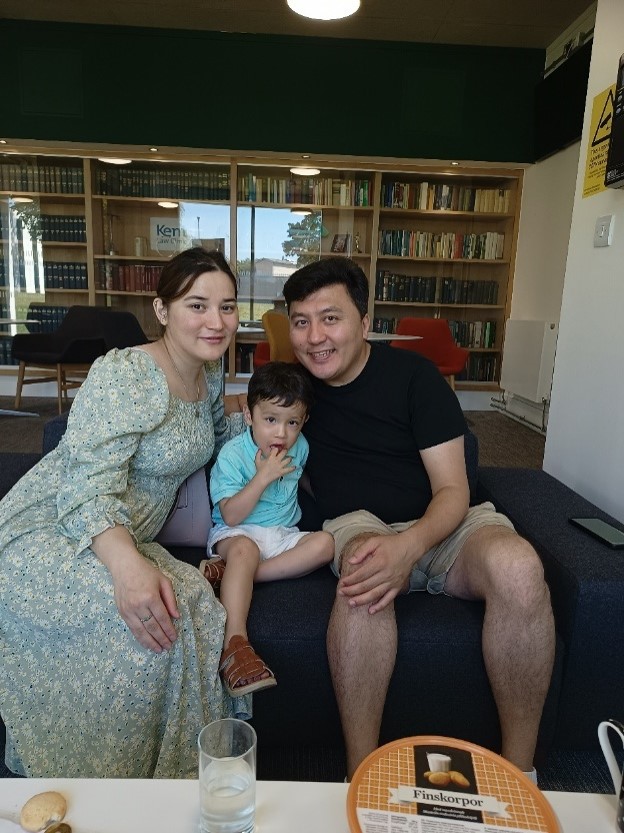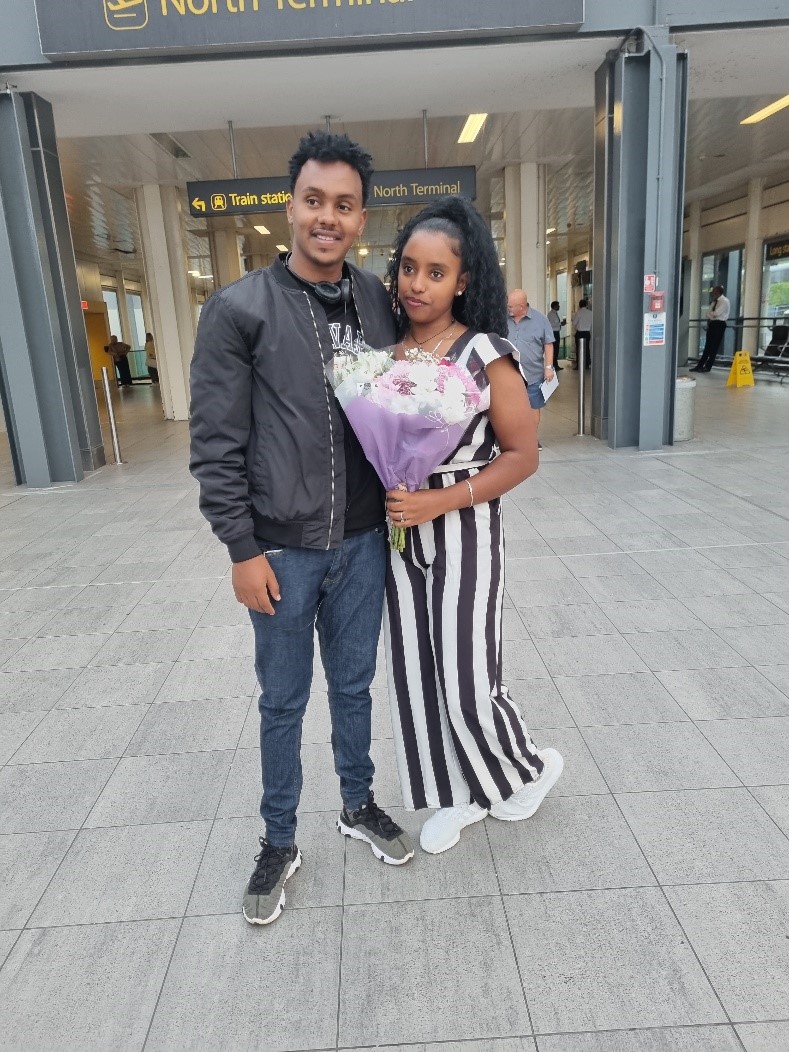The Clinic’s immigration lawyers, solicitor Sheona York and Dr Richard Warren deal with many cases that illustrate the inadequate provisions made for ‘safe and legal routes’ for refugee family members to come to the UK to join relatives here
You can read below about two of clients, who cases were successful, and whose stories show how long and tortuous the process can be.
Afghan family reunited after three years separation
Sweden threatened to deport wife and child ‘to Britain’, but the UK would not accept her…The separation of the family was exacerbated by post-Brexit immigration complications.
Mr S is a British citizen who originally arrived in the UK ago as a refugee from Afghanistan. His wife, Mrs A, also fled Afghanistan, but ended up in Sweden where she claimed asylum in 2020. Their British son was born prematurely in Sweden and has required significant medical assistance.
The couple hoped that Mrs A would be granted refugee status in Sweden. However, Sweden declared her claim inadmissible on the basis that she should have travelled to the UK to seek asylum, as that is where her husband is. The Swedish government stated that she should therefore leave Sweden for the UK or face deportation to either the UK or Afghanistan. They stopped providing accommodation and support for her and the baby.
But, since December 2020, UK policy has been to declare ‘inadmissible’ the asylum claims of anyone who arrive in the UK unlawfully if they have passed through other European countries (such as Sweden). And there is no provision for claiming asylum from outside the UK.
Before Brexit, our client’s wife could have applied to transfer her asylum claim from Sweden to the UK under a provision called the Dublin regulation. But with Brexit the UK left the Common European Asylum System and so the benefit of that regulation was lost. Our client Mr S also lost his free movement rights so could not move to Sweden to live with his wife; neither could the family meet the very strict UK immigration rules for spouse visas. For the last three years therefore, Mr S has had to maintain family life through short visits to Sweden and saving money to support his family abroad.
In April 2022, the Clinic assisted the family to make an application outside the immigration rules relying on Article 8 of the European Convention of Human Rights (ECHR). Clinic student Eman Qadumi worked with Richard to draft statements and detailed written representations in support of the application.
After significant delay and following a threat of judicial review, the application was finally granted, and the family have been able to reunite in the UK.

Reuniting a family from Eritrea
Our client’s two young siblings T and A finally arrive in the UK, after over two years of hardship, heartache, litigation, and bureaucratic struggle.
Our client S fled from Eritrea many years ago. She was given refugee status and has for a long time been a British citizen. One of her brothers and one sister also fled, and they are also resident in the UK.
Their father had been in prison for most of the last 20 years, because he was a Pentecostal Christian, a religion banned in Eritrea. Suddenly, in 2020, their father was let out of prison. He came home to his wife and youngest daughter A, and said they must leave immediately, that night. The family fled over the border into Ethiopia, where they were given refugee documents. A’s brother T, the only other child still in Eritrea, was staying with his grandparents in the country, and so was not with them.
Their father went off to fetch his son T, but he disappeared and has not been seen since. The family fear that the Eritrean army must have captured him. Then their mother was taken very ill, and died in hospital in Mekelle, in the Tigray region of Ethiopia, leaving A hiding out in a small village nearby. T meanwhile had crossed the border into Sudan, and, by the time he reached Ethiopia war had broken out in Tigray – the very province in which they and thousands of other Eritreans had taken refuge. The UNHCR left, and the refugee camps closed down. T could not get any refugee documents.
Our client took leave from work in the UK and went to Ethiopia to find T and A and to take them to the capital Addis Ababa, where she arranged for a room for them and someone who would take care of them. With the help of Clinic student Quinn Smith Sheona assisted (in 2021!) with her application for them to join her in the UK.
The Home Office took a whole year to consider the applications for the children T and A and refused them both. The Home Office chose to disbelieve everything – that their mother had died, that the father was missing, that T was their brother, and the Home Office claimed that in any case he was too old to be considered under the Immigration Rules. They disbelieved even the DNA tests – because A’s refugee ID document had been omitted from the DNA report, and T had no ID at all. Fresh DNA tests were done.
At the appeal hearing (summer 2022!) the Home Office did not really press any of these arguments but would not concede the case. The Immigration Judge found in our client’s family’s favour and allowed the appeal. At one point, listening to the Home Office’s arguments, the judge looked at the Home Office official and said: ‘but it’s DNA, innit?’
Next, the Home Office delayed for several months without issuing the visas. Eventually the visas were issued after we threatened to bring court proceedings.
Then a second problem emerged. Our client’s sister A, with refugee papers and therefore lawfully in Ethiopia, was permitted to leave the country. But T, having a visa but with no ID of any sort, was not permitted to leave. Neither the UNHCR nor the Red Cross could assist, as they had reduced their operations (including staff) in Ethiopia because of the war in Tigray. By the time the Ethiopian authorities were persuaded to let T leave, his UK visa had expired, and our client had to apply for a replacement visa. This cost money and took over 3 months. All this time T had had to hide in the place where he was staying, as, because of the Tigray war, the Ethiopian authorities had become stricter against Eritreans living in Ethiopia without refugee papers, apparently even forcing people to return to Eritrea.
Eventually T’s new visa was issued, and, on 2 September this year, he arrived to meet his sister A at Gatwick Airport.
Our client, their ‘big sister’ S, said that it was as if she had been carrying a heavy load, all this time, and now, finally, she can put it down. All her surviving family are now safely in the UK, and they are looking forward to a life lived without fear, but with

